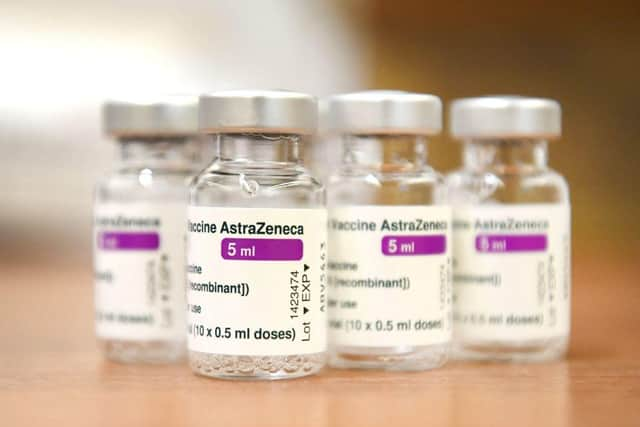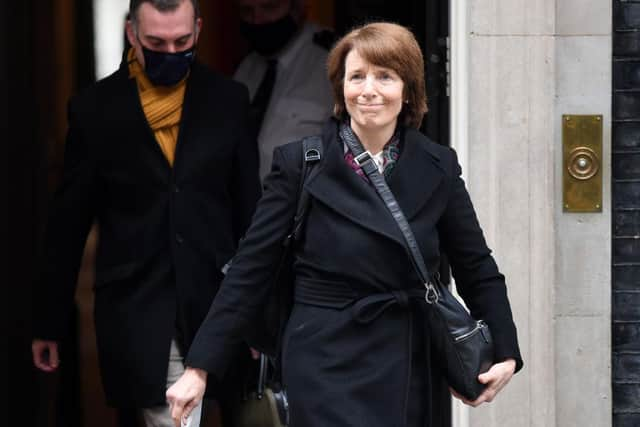Coronavirus: Europeans’ confidence in safety of AstraZeneca vaccine plummets, despite no evidence of clotting link
The YouGov survey of more than 9,000 adults from seven EU countries showed belief the vaccine is safe had dropped in the past two weeks in Spain, Germany, France and Italy.
Some 55 per cent of Germans said the AstraZeneca vaccine is unsafe while 32 per cent said it is safe.
Advertisement
Hide AdAdvertisement
Hide AdAstraZeneca’s vaccine was already seen as unsafe in France, but concerns have increased even further, with 61 per cent now saying it is unsafe while 23 per cent say it is safe.
More than a dozen European countries suspended use of the vaccine over concerns about blood clots, although most have now resumed its use.
A detailed scientific review of all the available data by the UK’s Government’s independent advisory group, the Commission on Human Medicines, found no evidence that blood clots in veins (venous thromboembolism) are caused by the AstraZeneca jab.
In addition, both the European Medicines Agency and the World Health Organisation (WHO) have ruled the AstraZeneca jab is safe and effective.
Meanwhile, the advice of the UK’s Medicines and Healthcare products Regulatory Agency (MHRA) remains the benefits of the vaccines against Covid-19 continue to outweigh any risks, and the public should continue to get their vaccine when invited to do so.


On Monday, an independent data safety monitoring board (DSMB) also identified no safety concerns relating to the vaccine.
It conducted a specific review of thrombotic events, as well as cerebral venous sinus thrombosis (CVST) – the specific type of brain blood clot that has been troubling Europe.
The DSMB found no increased risk of thrombosis among the 21,583 participants receiving at least one dose of the vaccine.
The specific search for CVST found no cases in this trial.


Advertisement
Hide AdAdvertisement
Hide AdDr June Raine, the MHRA’s chief executive, said last week: “We continually monitor safety during use of all a vaccines to protect the public and to ensure the benefits continue to outweigh the risks.
“Our thorough and careful review, alongside the critical assessment of leading, independent scientists, shows that there is no evidence that that blood clots in veins is occurring more than would be expected in the absence of vaccination, for either vaccine.
“We have received a very small number of reports of an extremely rare form of blood clot in the cerebral veins (sinus vein thrombosis, or CSVT) occurring together with lowered platelets soon after vaccination.
“This type of blood clot can occur naturally in people who have not been vaccinated, as well as in those suffering from Covid-19.
“Given the extremely rare rate of occurrence of these CSVT events among the 11 million people vaccinated, and as a link to the vaccine is unproven, the benefits of the vaccine in preventing Covid-19, with its associated risk of hospitalisation and death, continue to outweigh the risks of potential side effects.”
Dr Raine added: “You should therefore continue to get your jab when it is your turn.”
A message from the Editor:
Thank you for reading this article. We're more reliant on your support than ever as the shift in consumer habits brought about by coronavirus impacts our advertisers.
If you haven't already, please consider supporting our trusted, fact-checked journalism by taking out a digital subscription.
Comments
Want to join the conversation? Please or to comment on this article.